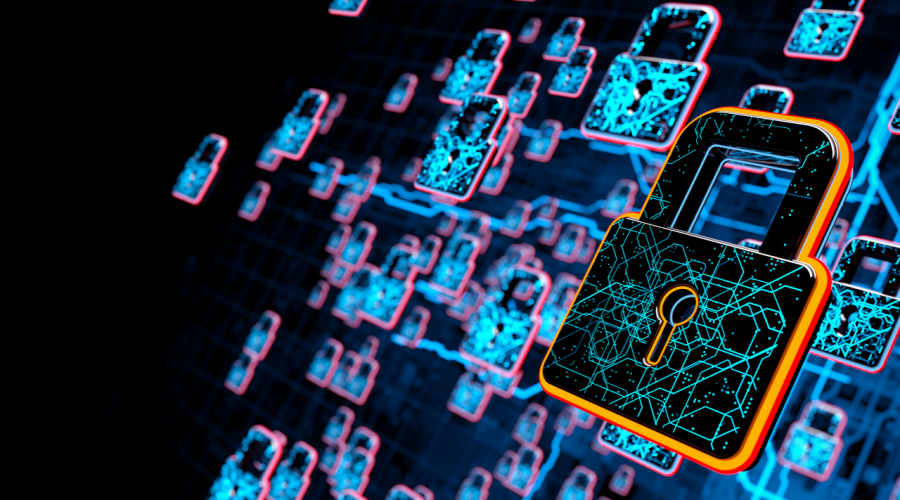Cyber Defense Specialists: How AI is Changing Security Operations
Businesses, governments, and individuals rely on secure networks to store sensitive data and run daily operations. However, cybercriminals are constantly developing new tactics to breach security systems. Traditional cybersecurity methods alone are no longer enough to combat these threats. This is where cyber defense automation plays a crucial role.
A Cyber Defense Automation Specialist focuses on developing AI-driven security responses to detect and prevent cyber threats before they cause damage. These specialists use advanced technology to automate threat detection, response, and mitigation, reducing the need for manual intervention. By combining artificial intelligence (AI) and machine learning (ML), organizations can enhance their cyber defense strategies and stay ahead of attackers. In this article, we will explore the importance of cyber defense, the role of automation, and how AI is transforming the field of cybersecurity.
Understanding Cyber Defense
Cyber defense refers to the use of technologies and strategies to protect systems, networks, and data from cyber threats. It involves preventing unauthorized access, detecting potential threats, and responding to security incidents. As cyber threats evolve, organizations must adopt advanced defense mechanisms to safeguard their digital assets.

Cyber defense includes:
- Network Security: Protecting internal networks from external threats.
- Endpoint Security: Securing devices like computers, mobile phones, and servers.
- Application Security: Ensuring software is free from vulnerabilities.
- Data Security: Protecting sensitive information from unauthorized access.
With the increasing number of cyber attacks, relying on manual security measures is no longer sufficient. Automated solutions powered by AI help organizations respond to threats quickly and efficiently.
The Growing Threat of Cyber Attacks
Cyber threats have become more sophisticated over the years. Attackers use advanced techniques, such as AI-powered malware, automated phishing campaigns, and ransomware, to exploit vulnerabilities in security systems. Some of the most common cyber threats include:
- Phishing Attacks: Cybercriminals use fake emails and websites to trick users into revealing sensitive information.
- Ransomware: Attackers encrypt an organization’s data and demand a ransom for its release.
- DDoS Attacks: Distributed Denial-of-Service attacks overload a system, causing it to crash.
- Malware: Malicious software designed to disrupt, damage, or gain unauthorized access to systems.
- Zero-Day Exploits: Attacks that target unknown security vulnerabilities before they are patched.
The Role of Automation in Cyber Defense
Automation in cyber defense involves using software and AI to detect and respond to security threats with minimal human intervention. Automated security solutions continuously monitor systems, analyze vast amounts of data, and react to potential threats in real-time.
Benefits of Cyber Defense Automation
- Faster Threat Detection and Response: AI-powered systems detect and mitigate threats within seconds, reducing potential damage.
- Reduced Human Error: Automation minimizes the risk of mistakes caused by human oversight.
- 24/7 Monitoring: Unlike human teams, automated systems operate around the clock.
- Cost Efficiency: Automated security solutions reduce the need for large cybersecurity teams.
- Scalability: AI-driven security solutions can protect organizations of all sizes, from small businesses to large enterprises.
How AI Transforms Cyber Defense
Artificial Intelligence plays a critical role in modern cyber defense strategies. By leveraging machine learning and predictive analytics, AI enhances security in several ways:
- Threat Intelligence: AI can analyze historical attack data to predict and prevent future threats.
- Anomaly Detection: Machine learning algorithms identify unusual network activity that may indicate an attack.
- Automated Incident Response: AI-driven systems take immediate action, such as isolating infected devices and blocking malicious traffic.
- Fraud Detection: AI helps detect fraudulent transactions and unauthorized access attempts.
- Behavioral Analysis: AI monitors user behavior to identify suspicious activities and insider threats.
Cyber Defense Automation Specialist: Roles and Responsibilities
A Cyber Defense Automation Specialist is responsible for implementing AI-driven security measures to protect an organization’s digital assets. Their primary duties include:
- Developing Automated Security Solutions: Designing AI-based tools that detect and respond to cyber threats.
- Monitoring and Analyzing Threats: Using advanced analytics to identify potential security risks.
- Implementing Incident Response Plans: Automating responses to security breaches to minimize impact.
- Collaborating with IT Teams: Working with cybersecurity professionals to improve defense strategies.
- Ensuring Compliance: Making sure security measures align with industry regulations and standards.
Challenges in Cyber Defense Automation
While automation offers many advantages, it also comes with challenges:
- False Positives: Automated systems may incorrectly flag legitimate activities as threats, leading to unnecessary alerts.
- Complexity: Implementing AI-driven security solutions requires specialized skills and expertise.
- Adaptability: Cyber threats constantly evolve, requiring continuous updates to automated defense systems.
- Cost of Implementation: Advanced AI security solutions can be expensive to develop and maintain.
- Ethical Concerns: AI-driven systems must ensure privacy and avoid unintended biases in decision-making.
The Future of Cyber Defense
As cyber threats continue to evolve, organizations must adopt AI-driven security measures to stay protected. The future of cyber defense will likely see further advancements in:
- Autonomous Security Systems: AI-driven platforms that operate independently to detect and respond to cyber threats.
- Enhanced Threat Intelligence: AI-powered systems that predict and prevent attacks before they occur.
- AI-Powered Security Operations Centers (SOCs): Automated monitoring centers that manage an organization’s security infrastructure.
- Blockchain Security: Using decentralized technologies to enhance data protection and identity verification.
- Cyber Resilience Strategies: Combining AI, automation, and human expertise to create a robust defense against cyber attacks.
Cyber defense is a critical component of modern cybersecurity strategies. With the rise of AI and automation, organizations can enhance their security posture and protect against advanced threats. A Cyber Defense Automation Specialist plays a key role in developing AI-driven security solutions, ensuring faster threat detection, improved response times, and greater efficiency.
At eStreet Security, we specialize in providing cutting-edge cyber defense solutions to help businesses stay secure. Our AI-driven security tools and expert guidance empower organizations to navigate the ever-changing cybersecurity landscape. As cyber threats continue to grow, investing in automation and AI-driven security solutions is no longer optional—it is essential.
By staying ahead of cybercriminals and leveraging the power of AI, organizations can build a safer digital future. The role of a Cyber Defense Automation Specialist will continue to evolve, ensuring that businesses and individuals remain protected against the ever-changing landscape of cyber threats.



